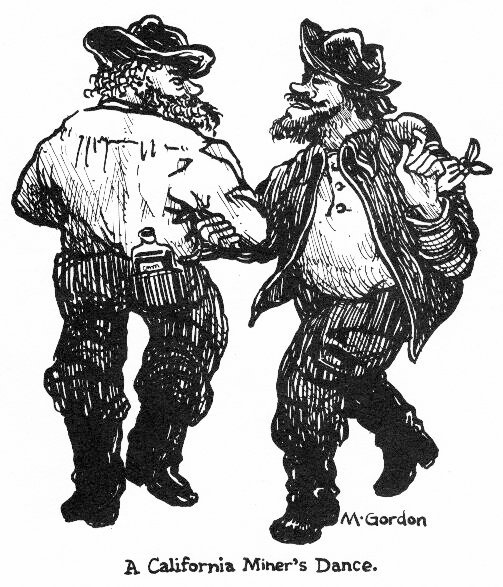How much do Broadway actors get paid?
ahhrealmonsters
Broadway Legend Joined: 9/11/10
#1How much do Broadway actors get paid?
Posted: 6/12/12 at 7:11pm
I'm not talking about the Equity minimum. How much do actors actually get paid? I assume a lot of ensemble members get the minimum, but I was wondering how much Tony winners leads, and "known" actors get- like Alice Ripley in N2N, Norm Lewis & Audra McDonald in Porgy & Bess, etc. What about stunt casting? I know a lot of the "celebrities" are D-list and therefore aren't paid the likes of, say, Catherine Zeta Jones.
I know the numbers aren't released, but I'm just curious. Thanks in advance. :)
#2How much do Broadway actors get paid?
Posted: 6/12/12 at 7:25pm
Google is your friend...
http://www.playbill.com/features/article/141677-ASK-PLAYBILLCOM-Actors-Salaries-The-Levels-of-Stage-Management
It's a year and a half old, but, with some exceptions, these numbers are about right for the 2012 casting equivalents.
mybestaudition
Chorus Member Joined: 8/19/11
#2How much do Broadway actors get paid?
Posted: 6/12/12 at 8:36pm
Also, Principals with box office draw will negotiate a percentage of the box office.
Standard pay bump for a Tony nom (for a lead) is $500/wk which becomes $1000/wk if they win.
I heard from people working on the productions that Patti was making 40k/wk for Gypsy, Nathan was making an astronomical 60k/wk for Addams, Alice made 8k/wk for Next to Normal, Harry made 30k/wk for Clear Day and Dan Radcliffe was making 50k/wk. All of these people also got a take of the B.O.
#3How much do Broadway actors get paid?
Posted: 6/12/12 at 9:14pmIt depends on the size of the role, the popularity of the show, and the show's weekly gross.
#4How much do Broadway actors get paid?
Posted: 6/12/12 at 9:50pm
More than you
#5How much do Broadway actors get paid?
Posted: 6/12/12 at 9:54pm
How can it rely on the weekly grosses OR popularity with a new show? Contracts are signed before they even begin rehearsals.
It has to do with two things: experience and negotiations.
#6How much do Broadway actors get paid?
Posted: 6/12/12 at 10:05pmContracts can be renegotiated and can also include terms for a percentage of growth - which would be dependent on popularity. As others have mentioned, big name marquee stars who are the reason a show is mounted - Daniel Radcliffe being a prime example, often have such contracts.
#7How much do Broadway actors get paid?
Posted: 6/12/12 at 10:07pm
well hypothetically if I signed a contract for 50% of the gross and I end up in a show that only makes 100 dollars, then that is much worse than signing a contract for 30% of the gross of a show that makes $500, right? But would I rather have my agent negotiate a higher percentage from the get go? Of course.
Obviously simple numbers, but I think that was what he meant in his post.
#8How much do Broadway actors get paid?
Posted: 6/12/12 at 10:07pm
double post-sorry
#9How much do Broadway actors get paid?
Posted: 6/12/12 at 10:21pm
When a show is not making its weekly nut, we know it's common to go back to the authors and director and ask them to take a royalty cut in order to help the show run longer.
Does anyway know if the same is common with star performers? Are they often asked to reduced their weekly guarantee or share of the gross to help a show run longer?
I ask because authors have quite a bit to gain in terms of subsidiary rights if the show continues to run. A star performer who takes a cut may only be making himself unavailable for other, more lucrative work.
#10How much do Broadway actors get paid?
Posted: 6/12/12 at 10:26pm^There were lots of reports of that happening during the Addams Family. I think it largely depends on the show and who the performer is. If the performer isn't a star and isn't making a lot from the get go, I highly doubt that's where cuts would come from. However, if the star is earning a huge salary and dramatically increasing the weekly nut, I imagine that would come up in conversation. However, there are certainly stars who would adamantly refuse a pay cut and take the show down with them.
#11How much do Broadway actors get paid?
Posted: 6/12/12 at 10:42pmHow much, regarding the statement above, do Broadway composers, librettists or bookwriters get paid? I don't know if it's an annual thing or a weekly nut, but other than a mention in the SMASH discussion that Christian Borle's character probably made something like $7 million yearly (which I don't even know if that was cited in the show or just speculation), I got nothing.
#12How much do Broadway actors get paid?
Posted: 6/12/12 at 10:50pmIs it true that Bernadette gave up her salary towards the end of Gypsy? Arthur Laurents mentioned it in his book.
#13How much do Broadway actors get paid?
Posted: 6/14/12 at 7:14pm
darquegk, the longstanding tradition is that the composer, lyricist and bookwriter each gets 2% of the weekly gross on a Broadway show. (If one person does two jobs, he gets both royalties.) If they have enough clout, they may also negotiate some sort of upfront fee, but lots of writers work for years for nothing until tickets start selling.
Directors make a little less, say 1 or 1.5%; choreographers less yet.
But everything can be negotiated, depending on whether one's name on a show helps to sell tickets.
And as I understand it, it's often the writers who are the first to be asked to take royalty cuts. The argument is that the longer their show runs in New York, the more they are likely to make on subsidiary productions, including stock and schools.
If they referred to a $7 million dollar figure for Christian Borle's character, they meant the HEAVEN show that was running concurrently, plus whatever he and Messing make from subsidiary productions of their other shows. (We saw them go to a high school production of their first show.)
In addition, there are royalties for sheet music and performance royalties that are supposed to be paid every time a song is performed anywhere, whether live or on radio or TV.
And there are often film rights: all sorts of variations there, subject to negotiation.
AEA AGMA SM
Broadway Legend Joined: 8/13/09
#14How much do Broadway actors get paid?
Posted: 6/14/12 at 7:20pm
"Is it true that Bernadette gave up her salary towards the end of Gypsy? Arthur Laurents mentioned it in his book."
I haven't heard that about Bernadette specifically, but I have heard of some big stars in the past working for a much lower figure than you would expect, mainly because they were big stars and didn't need the money from a Broadway show to keep their lives afloat.
Jon
Broadway Legend Joined: 2/20/04
#15How much do Broadway actors get paid?
Posted: 6/15/12 at 9:42amAs Gaveston said above - the writers of a show get a total of 6% of the weekly gross. So, if WICKED pulls in a million dollars in a good week, Steven Schwartz gets $40,000 for writing the score and lyrics while whoever wrote the libretto (can't recall) gets $20,000 - part of which he then has to pay to Gregory McGire, who wrote the novel.
#16How much do Broadway actors get paid?
Posted: 6/15/12 at 10:39am
That's a pretty impressive sum. I was disappointed at first at how low the percentage seemed... until I saw the actual realistic weekly gross.
Gotta keep writing!
Jon
Broadway Legend Joined: 2/20/04
#17How much do Broadway actors get paid?
Posted: 6/15/12 at 11:34am
Now, add in the road companies and foreign productions!
Think how much shows like Phantom and Les Miz have brought in for their creators over the years, with multiple tours and international productions.
#18How much do Broadway actors get paid?
Posted: 6/15/12 at 4:02pm
I'm far more curious how much a more realistically successful show makes- say a Title of Show or Urinetown. Shows without a property to license that live on more from schools and regionals than from endless
broadway runs. Anyone know what the return on those sorts of shows would be?
#19How much do Broadway actors get paid?
Posted: 6/15/12 at 4:15pm
Jon, I think Winnie Holzman wrote the book for the musical, WICKED.
And thanks for reminding us about the royalties for source materials. As I understand it, those may be in addition to the 6% or may come off the top of the 6% (with Schwartz and Holzman splitting the remainder 2/3 to 1/3). Maguire's percentage may also come out of the book royalty, as you say, but not necessarily.
#20How much do Broadway actors get paid?
Posted: 6/15/12 at 4:18pm
"It depends on the size of the role, the popularity of the show, and the show's weekly gross."
Why do you post things that are lies? It's obvious you don't know anything about theatre, like how to audition, so how can you just make this stuff up?
#21How much do Broadway actors get paid?
Posted: 6/15/12 at 4:20pm
darquegk, I can't even begin to estimate the royalties from subsidiary productions. But in his book, Hal Prince talks about Broadway productions that lost every penny in New York, but eventually paid off over time from stock and amateur rights. So the amount of money can be substantial... eventually. I assume this would be the exception rather than the rule, however.
#22How much do Broadway actors get paid?
Posted: 6/15/12 at 6:35pmI think that sort of effect has to be part of why not everyone considers "Legally Blonde" a flop, or at least utterly failed. If it didn't make back its investment during its Broadway run alone, surely tour, West End and the myriad school and regionals have reaffirmed the show's existence.
#23How much do Broadway actors get paid?
Posted: 6/15/12 at 7:29pm
^^^^That seems fair to me, d. If a show makes its investment back, then it's a hit. Limiting the returns to just Broadway grosses seems arbitrary to me.
Of course, mounting a tour, opening in London, etc., all require additional investments which must also be paid off before a show can be considered "in the black".
Sinfonia2001
Stand-by Joined: 1/16/07
#24How much do Broadway actors get paid?
Posted: 6/15/12 at 7:33pmWow TheatreDIVA, you seem bitter about something. Wonder why you had to give such an uneducated, bitchy answer. Any response???
Videos








